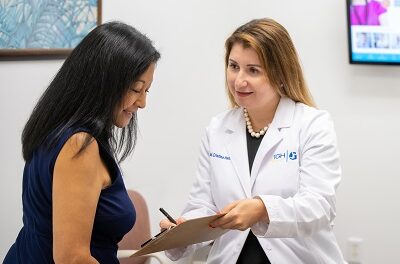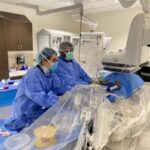 For the second year in a row, Camillus Health Concern, Inc. (CHC) has been recognized by the Health Resources and Services Administration (HRSA) for providing exemplary service to patients and for its commitment to quality health care. CHC received a 2018 Quality Improvement Award, which noted that it had achieved the best overall clinical performance among all health centers, placing it in the top 30 percent of the adjusted quartile rankings for clinical quality measures.
For the second year in a row, Camillus Health Concern, Inc. (CHC) has been recognized by the Health Resources and Services Administration (HRSA) for providing exemplary service to patients and for its commitment to quality health care. CHC received a 2018 Quality Improvement Award, which noted that it had achieved the best overall clinical performance among all health centers, placing it in the top 30 percent of the adjusted quartile rankings for clinical quality measures.
“We are really proud of this recognition because all of us at Camillus Health Concern have been working hard to improve the quality of care that we provide to our patients. We are excited by what we have accomplished, and we’re looking forward to the new quality improvement initiatives that we have planned for this coming year,” said Saraswati Iobst, M.D., who serves on the quality improvement team.
One example of this is CHC’s colorectal screening program, which has seen an increase in the percentage of patients screened from 11 to 44 percent.
“There are a lot of challenges with colorectal screening, especially in the population that we serve,” explained Chief Nursing Officer Anna Ferguson. “We needed to find innovative ways to target noncompliant individuals; while we might normally give a patient a test to take home and send back, many of our clients live on the streets and have no access to bathroom facilities.” CHC provides comprehensive health care, behavioral health and social services to the indigent and homeless in Miami-Dade County.
To reach this population, CHC held a Carnival Day that included nutritional snacks and a gift bag for patients. “We gave them something similar to Fiber One to stimulate bowel movements, and then tested them on-site,” said Ferguson. “The information was entered into our electronic health system.
“It was a lot of work, but this initiative really helped these patients,” she added. “We will continue to do it and to leverage it with other organizations.”
Because CHC serves a transient and poor population, it has to be innovative when it comes to treating patients. “The majority of our patients are uninsured, experiencing homelessness, and almost all are living below the federal poverty line,” said Dr. Iobst. “In order to improve health outcomes, we must also take into consideration social determinants of health; the circumstances in which a person is living, for example, and how it affects their health.
“Many of our patients with poorly controlled diabetes are experiencing homelessness and food insecurity, and successful management of diabetes requires a healthy diet and often medications such as insulin,” she continued. “These patients often do not have regular access to healthy food or to conditions that allow them to properly store their insulin, which needs to be refrigerated or kept at room temperature.”
CHC is investigating interventions that will allow it to improve diabetic outcomes, including a point-of-care testing machine to measure how well a person’s sugars are controlled in real-time. “This will allow us to make important interventions right away, instead of waiting a week for results to come back,” said Dr. Iobst. “We are also seeking to obtain ice packs and storage containers to allow our patients to properly store their insulin.”
CHC also plans to partner with other community organizations to focus on patients’ social determinants to get them the care they need. “We need to look at how they are getting their nutrition, and work with housing entities and shelters to address homelessness, especially for our medically complicated, high-risk patients,” said Dr. Iobst.
This integrative approach is being used within CHC’s different clinics as well. “Because of the transient nature of our patients, we are looking at different areas as possible pick-up opportunities where we can screen them, whether they’re here for primary health care, dental care, or behavioral health,” said Ferguson.
CHC is also working with outside providers, such as Jackson Memorial, to streamline approach guidelines. “We’re not waiting for the provider to say that an A1C test is needed; we’re doing point-of-care testing when the patient is here because we don’t know the next time we’ll see them,” she added.
CHC is also expanding its outreach services to help patients who have somehow fallen out of care, reaching out to those who may be living on the streets or in shelters.
“We are taking a lot of approaches to address the needs of this population, and our whole staff is working to move the organization forward to help the people we serve,” said Francis Afram-Gyening, CEO, adding that HRSA recently gave CHC a grant of $285,000 to expand its substance abuse and mental health services. The organization is also using a $337,400 award to build a state-of-the-art dental suite to serve more patients.
“We really value the recognition that we’ve received from HRSA as our largest funding source,” he added. “We are glad that they appreciate what we are doing for the community.”


























